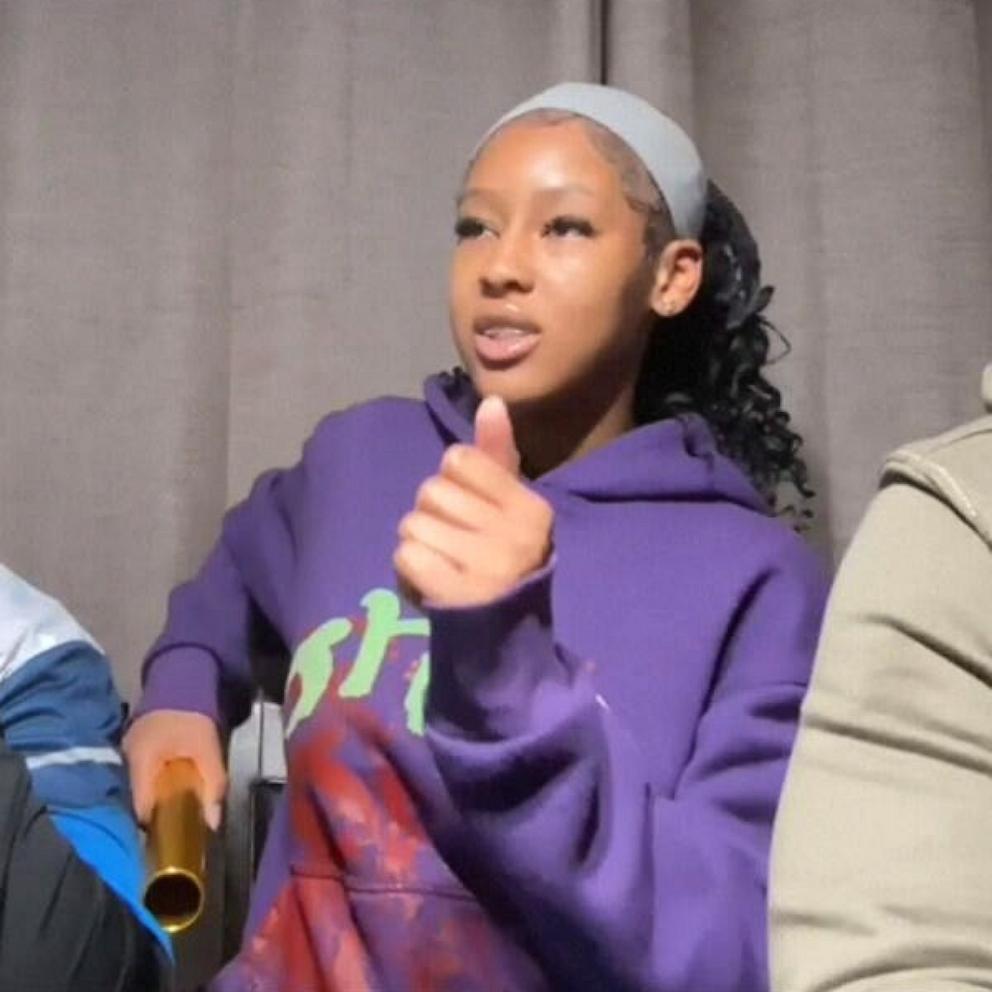Defense Secretary Lloyd Austin says cancer diagnosis was 'gut punch,' instinct was keep private
Defense Secretary Lloyd Austin, facing reporters' questions for the first time since his secret hospitalization, said on Thursday that his cancer diagnosis was a "gut punch" and that his first instinct was to keep it private -- which he acknowledged was a mistake.
"We did not handle this right. I did not handle this right," Austin said.
"I should have told the president about my cancer diagnosis, and should also have told my team and the American public," he continued. "I take full responsibility. I apologize to my teammates and to the American people."

The media briefing was also the first time the public saw him standing. He continues to undergo physical therapy, and said he is recovering well but still has some leg pain. He had a visible limp walking to and from the podium.
The defense secretary underwent a minimally invasive surgical procedure for prostate cancer Dec. 22, which led to a urinary tract infection and serious intestinal complications. He was hospitalized again on Jan. 1, but the White House didn't learn of it for three days.
Austin’s deputy was granted authority of the Defense Department during his surgery and hospitalization, but she wasn’t told why she had been put in charge, according to a detailed account provided to lawmakers.
The delay in informing President Joe Biden and top administration officials of his hospitalization prompted intense scrutiny and is under investigation by lawmakers and the Pentagon. President Biden publicly faulted Austin for not informing him earlier, telling reporters last month he still had confidence in Austin, but noted it was a lapse in judgement.
Austin said he directly apologized to President Biden, and told him he was "deeply sorry" for not letting him know of his diagnosis immediately.
Asked by ABC News whether he ever considered resigning amid the severe blowback from his handling of the situation, Austin said no.
Austin contended he never directed anyone to keep his Jan. 1 hospitalization from the White House, and also denied creating a "culture of secrecy."
"I think there will be security officers, there will be other staff members who may perceive that they're doing things in my best interest and, you know, I can't predict or determine or ascertain what those things may be," he said.

The secretary was pressed multiple times on what his staff knew and when, and whether he directed his aide to ask a 911 dispatcher to have the ambulance arrive at his home with no lights or sirens.
"I asked my assistant to call the ambulance," he said. "I did not direct him to do anything further than just calling the ambulance. And so what he said and why he said it, I think that should come out in the review as well."
An internal review as well as an investigation by the Defense Department inspector general are ongoing.
In letters to Congress, Austin and other top Pentagon officials say at no point in time did the department lack leadership.
During both his surgery and when he was later admitted into intensive care, Austin said his duties were officially transferred to his deputy, Kathleen Hicks, who was on vacation in Puerto Rico but traveling with staff and communications access. Austin said he still had full access to secure communication from the hospital and was monitoring day-to-day operations.
One question though is who was in charge Jan. 4 when the military conducted a deadly strike against a leader of the Iran-backed Harakat al-Nujaba terrorist group. Austin said the president had already authorized the strike before he entered the hospital.
On Thursday, Austin promised transparency going forward.
Asked if they were committed to sharing the findings from the internal review with the public, Austin said some information may be classified but they will "share as much as possible as soon as possible."
Austin also spoke frankly about his first response upon learning of his cancer diagnosis.
"The news shook me, as I know that it shakes so many others, especially in the Black community. It was a gut punch," he said. "And frankly, my first instinct was to keep it private. I don't think it's news that I'm a pretty private guy. I never like burdening others with my problems. It's just not my way."
"But I've learned from this experience," he continued. "Taking this kind of job means losing some of the privacy that most of us expect. The American people have a right to know if their leaders are facing health challenges that might affect their ability to perform their duties -- even temporarily. So a wider circle should have been notified, especially the president."

He also said that by keeping his condition under wraps, he missed an opportunity to send an important message.
"I was diagnosed with a highly treatable form of cancer," he said. "A pretty common one: one in eight American men will get prostate cancer, one in six Black men will get it. And so I'm here with a clear message to other men, especially older men. Get screened. Get your regular checkups."
ABC's Chris Boccia contributed to this report.




